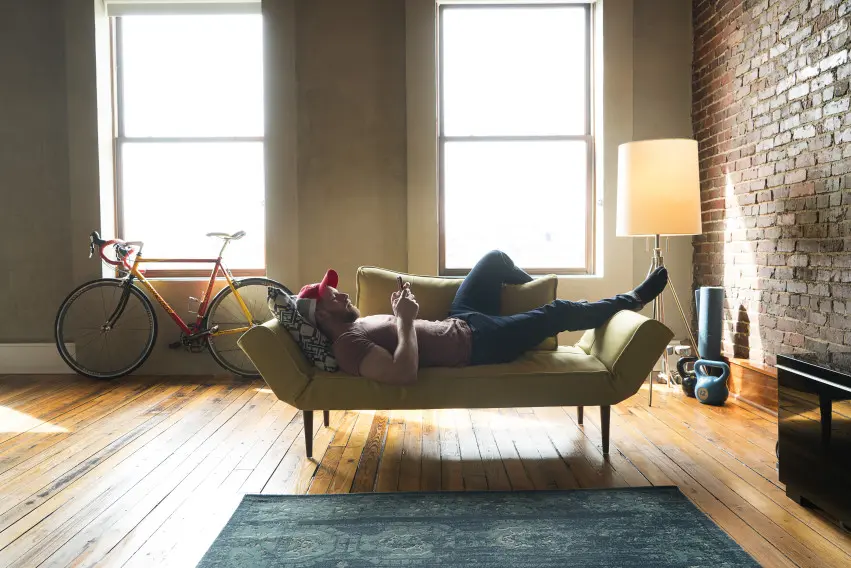
Is Renters Insurance Required?
When you’re on the hunt for that perfect apartment or cozy home to rent, there’s one detail that tends to slip under the radar—renters insurance. While having renters insurance may not be a state law in Tennessee, chances are your future landlord will require you to have it as part of your lease agreement.
But, what exactly is renters insurance and how does it benefit you? In this article, we’ll explore the nitty-gritty of renters insurance, what it typically covers, and how you can easily purchase a policy from your local Farm Bureau Insurance of Tennessee agent.
What is Renters Insurance?
Renters insurance is a specialized policy designed to protect your personal belongings in unforeseen events like theft or, fire. Unlike homeowners insurance, which focuses on the building's structure, renters insurance zeroes in on the contents within the rented space. It covers belongings like furniture, electronics, clothing, and more.
The Benefits of Renters Insurance
Beyond meeting lease requirements, renters insurance offers a lot of advantages. It can provide coverage for your personal property and liability coverage (because, let's face it, accidents happen), and helps out with extra living costs if your place becomes uninhabitable due to a covered event. Let's break down some of the key components renters insurance has to offer.
Protect Your Personal Belongings
One of the best things about renters insurance is that it's your shield in case of the unexpected. If there's a theft, fire, or another covered incident, renters insurance steps in to help you recover the value of your lost or damaged belongings.
Liability Coverage
Renters insurance offers more than just protection for your personal belongings; it extends a safety net in situations involving personal liability. Let’s delve into specific scenarios where personal liability coverage proves invaluable:
Guest Injuries on the Rented Property: Imagine a scenario where a friend or family member visits your rented apartment and accidentally slips, resulting in an injury. If that person decides to pursue legal action, your renters insurance may step in to cover their medical expenses. Personal liability coverage helps ensure you’re not left shouldering the financial burden of an unexpected accident.
Accidental Damage to Neighbor’s Property: We all make mistakes, and in a rental community, accidents can happen. If, for instance, you accidentally cause damage to a neighbor’s property–perhaps a leak from your apartment damages their belongings–your renter’s insurance may help cover the costs. This extends the protection beyond the confines of your rented space.
Additional Coverage for Living Expenses
Renters insurance often includes coverage for additional living expenses if a covered event makes your property uninhabitable. This ensures that tenants are not burdened by unforeseen costs during challenging times.
Don’t Landlords Have Insurance?
Landlord insurance, also known as dwelling or rental property insurance, primarily shields the structure of the rented property. It often covers the building, structural elements, and any equipment owned by the landlord on the premises, like appliances or heating systems. While renters insurance and landlord insurance may overlap in providing liability coverage for you and your landlord, they address distinct areas of protection. You should not rely on your landlord’s insurance to cover your personal belongings.
Determining the Need for Renters Insurance
Now that we’ve discussed the benefits of renters insurance, let’s determine if renters insurance is right for your needs.
Who Should Consider Renters insurance?
The straightforward answer is anyone renting a property, be it an apartment, house, or room. Renters insurance can provide valuable coverage for personal belongings and financial protection in unexpected events.
How to Assess Your Coverage Needs
When deciding on coverage limits, take inventory of possessions and estimate their value. This will help you determine the amount of coverage you need to replace your belongings in case of theft, fire, or other covered incidents. Additionally, consider your location and the potential risks associated with it. Read more about how to determine how much renters insurance coverage you need.
Is Renters Insurance Worth the Cost?
Absolutely! Despite varying costs based on location and coverage, renters insurance is generally affordable. Considering the potential financial loss from theft or damage, the cost is a small investment for peace of mind, covering personal property and providing liability protection.
Renters Insurance FAQS
Is renters insurance legally required?
No, renters insurance is generally not legally required by state law. However, many landlords include it as a mandatory provision in lease agreements to protect both tenants and themselves.
What does renters insurance typically cover?
Renters insurance typically covers personal property, liability protection, and additional living expenses in case of covered events. Personal property coverage can include belongings like furniture, electronics, and clothing.
Does renters insurance cover high-value items?
Yes, renters insurance generally can cover high-value items such as furniture, electronics, and clothing. However, there may be coverage limits. You can discuss specifics with your local insurance agent.
Can I get renters insurance if I live in an apartment temporarily?
Yes, renters insurance is beneficial even for temporary living situations. It provides protection for your personal belongings and offers liability coverage, regardless of the duration of your lease.
